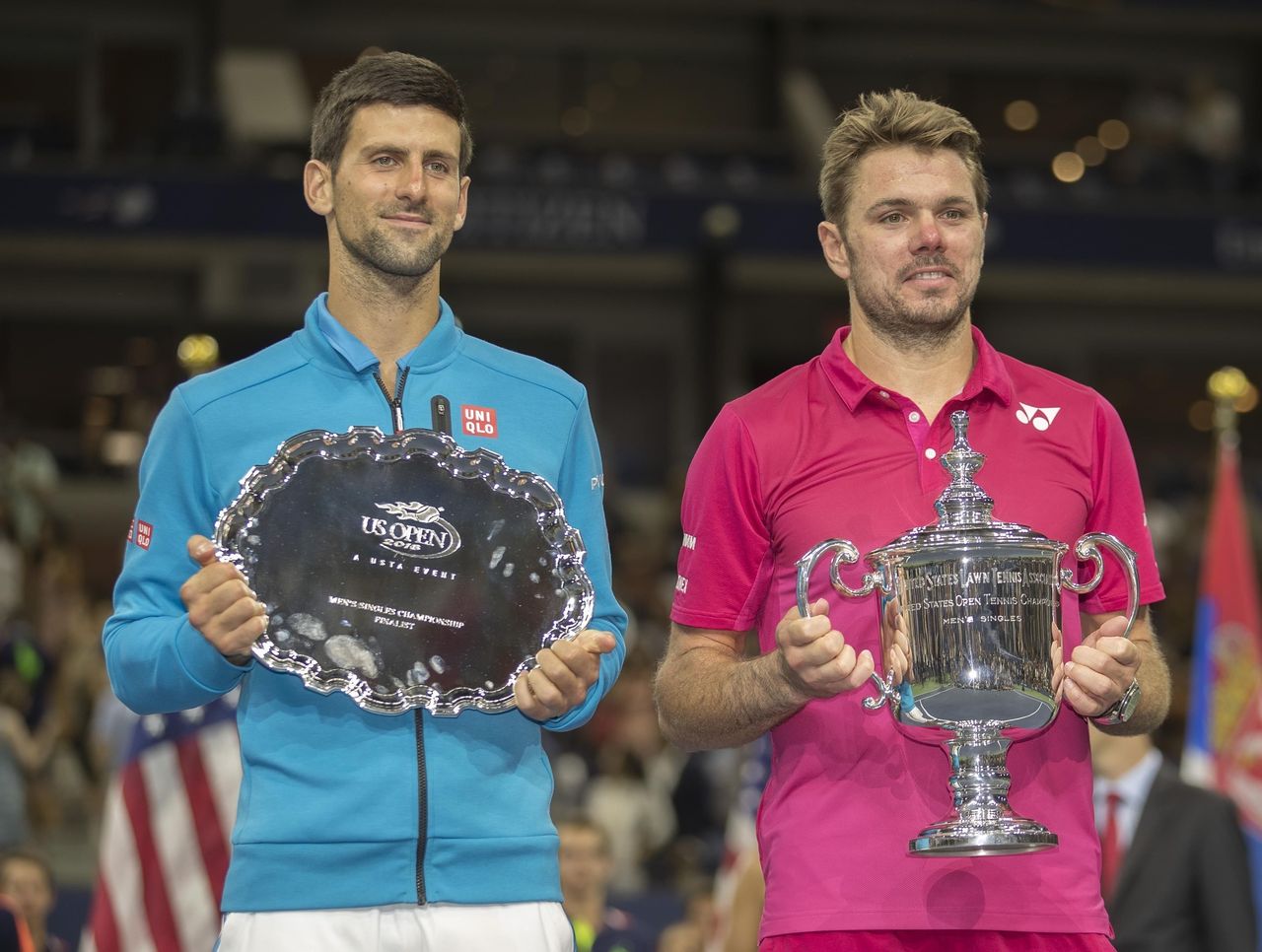Wawrinka overcomes Djokovic in 4 sets to win US Open
Stan Wawrinka put forth yet another monstrous effort in a Grand Slam final on Sunday, defeating world No. 1 Novak Djokovic 6-7 (1), 6-4, 7-5, 6-3 in a grueling, physical four-hour battle to win the US Open.
It's becoming almost routine. The 31-year-old Swiss now owns three major titles - one in each of the past three seasons, each at a different Slam - and is a perfect 3-for-3 in major finals, with each win coming against the world's incumbent top-ranked player. His remarkable late-career surge has been defined by the way he's consistently elevated his game on the elevated stage.
After making nary a major final before his age-29 season, he's now, incredibly, three-quarters of the way to a career Grand Slam, and is the only active men's player (and just the fifth in history) to win two Slams after his 30th birthday.
As expected, his showdown with Djokovic was a boxing match from the get-go, with both men dancing around the court, probing for weaknesses, maneuvering for court position, and throwing haymakers.
Early on, Djokovic made it seem like he'd be able to withstand Wawrinka's best punch, playing such whirling, all-consuming defense that Wawrinka started loading up and aiming for the outsides of lines, with predictably spotty results. Djokovic - who'd spent nearly nine fewer hours on court than his opponent through the first six rounds of the tournament - looked the fresher player, and ran out to a big first-set lead.
But Wawrinka isn't wired like other players; rather than tire and break down as a match drags on, he seems to gather steam. His opponents might nip his momentum in the bud, and take the wind out of his sails before he has a chance to really get going, but once he's going, he tends to flatten everything in his path. Daniel Evans had a chance to curtail his run in the third round, but couldn't convert a match point. Kei Nishikori had him on the ropes in the semis, up a set and a break, but let a few too many opportunities slip away, and ended up getting steamrolled in the final two-and-a-half sets.

Djokovic had his chances, too. He had 17 break points in the match, but made good on just three. He won a higher percentage of his return points than Wawrinka, but still got broken twice as many times as he broke. He double-faulted seven times - including once on break point - and stuck just 51 percent of his first serves. To put it in simplistic terms, Wawrinka was simply more clutch.
"I lost my nerves in important moments, he kept his cool. I think that's what decided the match," Djokovic said. " ... He stepped in and played aggressive, where I was kind of more waiting for things to happen.''
On a micro level, the match seemed to turn when Djokovic failed to convert two set points on Wawrinka's serve at 2-5 in the first. Wawrinka managed to hold, then promptly broke, and ended up taking the set to a tiebreaker. Even though Djokovic won the breaker going away, the fire had been lit, and Wawrinka was a different animal from there on out.
He got his down-the-line backhand humming, and started threading it into any needle of deuce-court space he could find. He started moving more fluidly, at various points even turning the tables on Djokovic and forcing the Serb to overcook groundstrokes as a result of his defense. By the time the fourth set rolled around, Djokovic was stumbling around on an injured toe, clutching at his legs, and preparing to lose.
Wawrinka didn't succumb to the potential distraction that was Djokovic's impromptu seven-minute medical timeout before the changeover. He didn't crack when, in his final service game, he fell behind 0-30. He did what we've grown accustomed to seeing him do in these big moments the last three years: He hit courageously until the end. He imposed his will. He reached out to grab the moment, and ensconced it in a big bear hug.
And then he did the same to the US Open trophy.
HEADLINES
- Madrid Open roundup: Sabalenka ekes out 3-setter, Rublev ends skid
- Nadal cruises past American teen in 1st round of Madrid Open
- French Open to inaugurate 2nd retractable roof ahead of Paris Olympics
- Nadal says he's not fully fit, unsure about playing French Open
- Brian Tobin, former ITF president, dies at 93